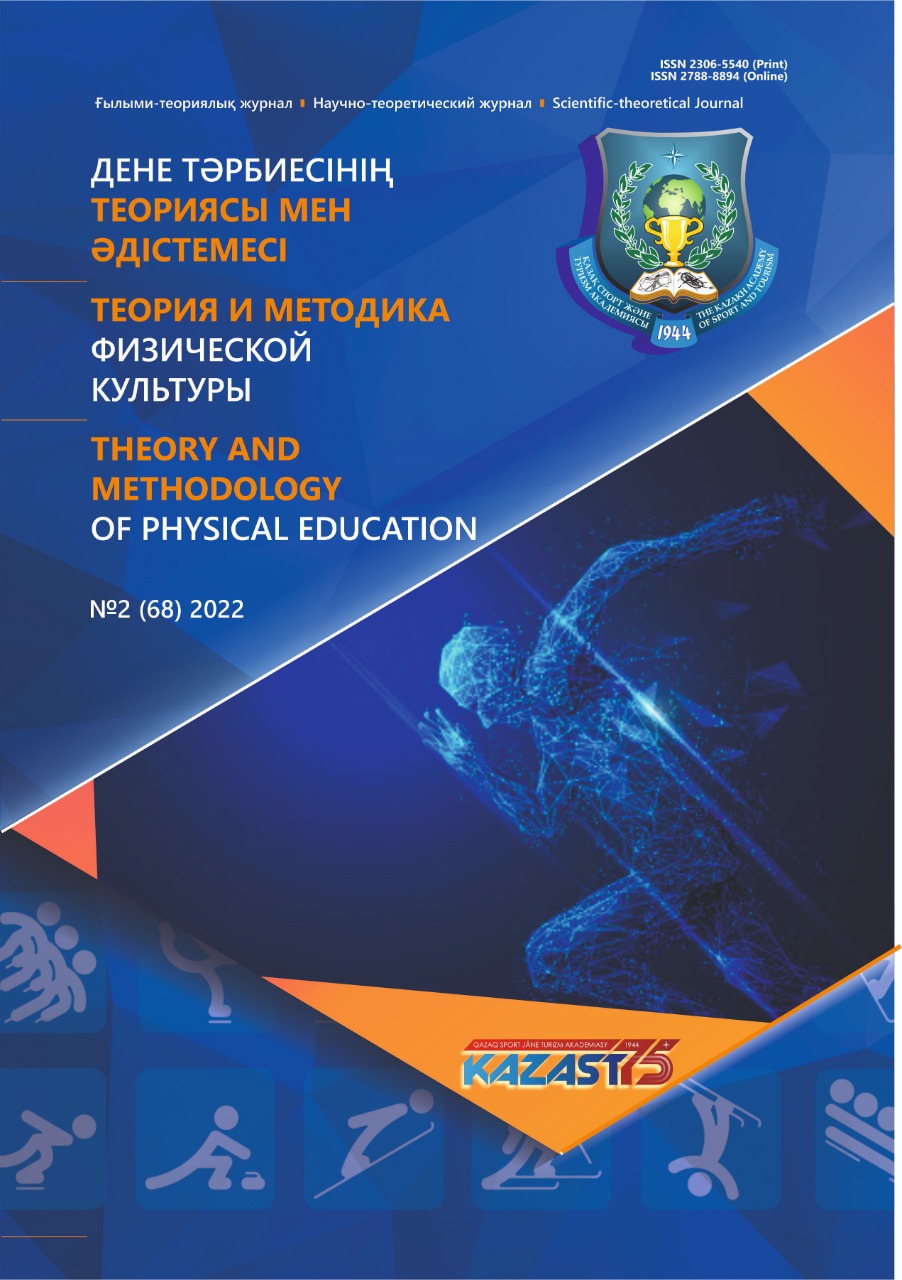Model of development of cognitive independence of high school students in physical culture lessons
DOI:
https://doi.org/10.48114/2306-5540_2022_2_99Keywords:
cognitive independence, high school students, development model, physical education lessons, cognitive activity.Abstract
The author of the article, based on the analysis of modern psychological, pedagogical and
methodological literature on the problem, describes a constructed model of the development of
cognitive independence of high school students in physical education lessons. The article presents
in detail methodological approaches (activity, personal, synergetic, humanistic, axiological), basic
principles (integrity, subjectivity, creativity and success, trust and support), as well as the goal, the main
subjects of interaction (teachers and students), pedagogical technology for the development of
cognitive independence, pedagogical conditions (inclusion of high school students in the process of
interiorization of public relations; creation of a special learning environment, management of the process
of independent work; the teacher’s possession of technologies and methods for the development
of cognitive independence; step-by-step development of the process of cognitive independence).
independence), features of physical education lessons (correct setting of lesson goals; maximum
individualization of education; optimal workload of all students; independent nature of educational
activities; constant monitoring of students’ activities in the classroom; organization of versatile types of
sports and health-improving and sports and health-improving activities of students; the motor nature of
educational activity (training in motor actions); close relationship of mental and physical activity; close
relationship in solving health-improving, educational and educational tasks), the levels of manifestation
of cognitive independence and the final result.


